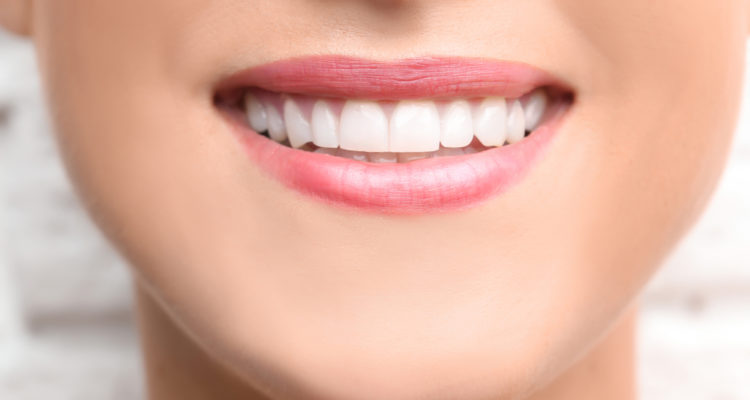Do you have a chipped tooth that is making you less chipper? Here’s a solution that will make you smile: Dental bonding is a procedure in which a soft composite resin (plastic) is fitted and molded over a chipped, cracked, or discolored tooth. The plastic is hardened using an ultraviolet light or laser, and the material bonds to the tooth. Bonding is cost and time effective and looks extremely natural once the plastic is shaped and polished to match the surrounding teeth.
According to the American Academy of Cosmetic Dentistry, the most common application of bonding is to correct teeth that have chips in the enamel. Other cosmetic uses of dental bonding is to make teeth look longer, close gaps between teeth (most commonly, the front two teeth), brighten discolored teeth, and cover silver fillings that are visible when you smile. Outside of improving the appearance of teeth, dental bonding can also correct serious oral issues, including:
- Smoothing over the edges of teeth that are rough, chipped, jagged, or worn down. Chipped or jagged teeth can catch on the tongue and cheeks, causing pain or tiny cuts. And teeth with untreated chips in the enamel are at higher risk for developing bigger chips, more tooth damage, infections, and cavities.
- Filling in small cavities. If you have a small cavity in a tooth that does not bear excessive force from chewing and biting, bonding is a good alternative to traditional amalgam fillings.
- Protecting exposed teeth roots. Exposed roots – caused by gum recession – can be sensitive or painful when you eat or drink hot and cold items. Bonding is used to shield the vulnerable root from pain and further damage.
- Changing the shape or size of teeth. Uneven teeth, or teeth with large spaces between them, can disturb normal bite patterns and put more pressure on the jaw and other teeth.
Unlike other dental procedures – like crowning, bridging, or fitting veneers – bonding takes only 30 minutes to an hour to complete, in a single dentist visit. The process is minimally invasive, minimally painful, and involves less tooth enamel removal than more extensive dental procedures. Anesthesia is generally not needed, unless the procedure is used to fill in a cavity. After bonding is applied, no special oral hygiene care is required for maintenance.
At your dental bonding appointment, you can expect the following:
- Your dentist will choose a composite resin that most closely matches the color of your natural teeth.
- The tooth or teeth needing repair will be etched and abraded to create a rougher surface – this will help the resin bond more firmly. A conditioning agent will then be applied to make the plastic stick.
- The putty-like resin will be spread over the tooth, molded to fit the tooth’s shape, and smoothed to make it appear natural.
- An ultraviolet light or laser will be used to harden the soft plastic.
- Your dentist will wrap up with a few finishing touches: additional shaping, trimming, and polishing to make the tooth match its neighbors.
While the composite resin is a durable material, bonds are still susceptible to staining and they do not last as long as other dental solutions, like crowns and veneers. Foods and drinks that can stain your natural teeth can also stain the bonding material: coffee, wine, and berries, for instance. Avoid eating or drinking staining substances for up to 48 hours after a bonding procedure, and after that clean your teeth regularly as part of a good oral hygiene routine. Resin is also not as strong as tooth enamel – fingernail biting or chewing on hard objects and ice can chip and break the material. Call your dentist immediately if you notice jagged edges, an uneven bite, or if pieces of the resin break off. With proper care, bonding can last anywhere from 3 – 10 years before it needs to be replaced. It is a more cost-effective dental procedure than crowning or veneers, and it may be covered by insurance if dental bonding is recommended for structural repair purposes.
If you feel self-conscious over chips, discoloration, or large tooth gaps, stop hiding your smile and speak with Dr. Boyett at Boyett Family Dentistry today. Dental bonding is an affordable and easy solution that is effective for many people; call our office at 863-294-9200 for appointment times.





